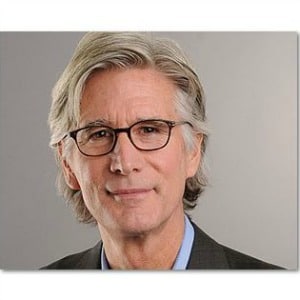
(By Bob McCurdy) An article was published last week that did a deep dive on the marketing campaigns that have won “Effies” over the years. The Effie Awards are recognized worldwide as one of the most prestigious awards within the ad industry as they recognize marketing campaigns that were “effective.” In other words, the campaign had to generate considerable financial payback (ROI) not just be judged as having good creative to win. You can read the article here.
Six thousand winning campaigns over the past 50 years across the globe were analyzed in an effort to identify what marketing factors contribute most to the cash register ringing. The findings follow:
Mass delivers better than target, but…
It’s one of the great debates of advertising: Is it better to go after all consumers in a category through large-scale, accessible brand-building campaigns, or to home in on a specific segment with a highly targeted message? As it turns out, mass delivers better than target—but target is still essential. The most-effective campaigns we found relied on a combination of the two.
Comment: A balance between scale and precision is always best. It’s about “and,” not “or,” as an over-reliance on targeting can grease the way to lower sales. P&G’s Chief Financial Officer and Co-Chairman Jon Moeller this week speaking about P&G’s advertising, credited the decline in frequency and P&G’s increase in reach as a major contributing factor to their increased advertising efficacy.
Keep it up
As digital and social channels have made it easier to turn campaigns on and off, there has been an uptick in submissions for campaigns that have lasted less than six months. This is unfortunate, as our data clearly shows that longer campaigns yield greater results. And here we found no plateau effect—the longer the campaign, the more effective it is likely to be, with no discernible limit.
Comment: This finding highlights the positive impact of “acceleration,” which points to increased payback to campaign continuity. This supports “recency” planning which is built upon the foundation of continued brand presence.
Turn up the channels
The proliferation of channels can sometimes feel like a burden. But more channels equals more effectiveness. And again, this is a category in which we found no plateau effect. If you have the budget and bandwidth to manage them, adding channels can only increase your campaign’s impact.
Comment: This finding supports the conclusion of the 2016 ARF study and other ROI research that discovered that ROI increases as the number of media channels increases. A buffet of different media is more effective than a plate full of one, as different media touchpoints assist to more effectively and deeply insert a brand into a consumer’s psyche.
A little research goes a long way
In the age of big data, there is a tendency to equate quantity of research with quality. But when it comes to effectiveness, excessive research yields diminishing returns. Campaigns that were based on no research were least likely to win an Effie, and those that performed a little research were most likely to win. Beyond that, more research actually correlated with a gradual decline in effectiveness.
Comment: There’s even a point of diminishing returns (PODR) with research. Can’t wing it but can overdo a good thing. The marketing director or account manager that just went overboard might be the person who got intoxicated on too many facts and figures.
Be very brave
Every winning submission from the past 50 years was graded on bravery. Very conservative campaigns were given a score of 1, while very risky campaigns that put everything on the line were given a 5. Campaigns with a score of 1 did pretty well; the 2s performed the least well, with the 3s and 4s faring only slightly better. But the 5s were off the charts. The truth is, if you want to get the best results from your advertising, your safest bet is to take the biggest risk.
Comment: “Safe” advertising is the riskiest. Attempting to appeal to everyone, appeals to no one. The bible said the meek shall inherit the earth but the meek aren’t world beaters when it comes to planning and creating successful ad campaigns.
The importance of bravery also applies to salespeople. The best salespeople are sales “CATS,” which stands for Courageous, Attentive, Tenacious, Scrupulous. They have the courage to ask for the order when they’ve earned it, they are hyper-attentive to their client’s needs. They are tenacious, understanding that the one who quits last usually wins, and they are scrupulous, having high moral and ethical standards.
The takeaway from all of this is to summon the courage to swing for the fences when finalizing creative, media channel selection, or when selling, as in the end one’s professional accomplishments shrink or expand in direct proportion to one’s bravery.
Bravery — don’t go to work without it.
Bob McCurdy is Vice President of Sales for the Beasley Media Group and can be reached at [email protected].





